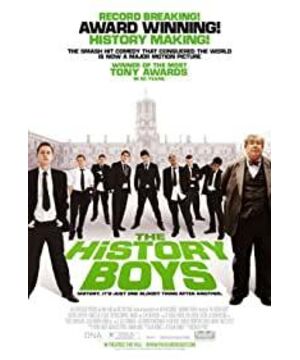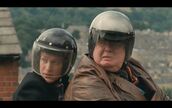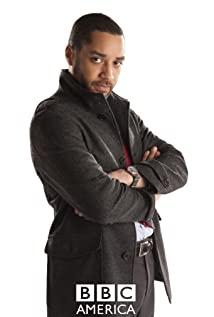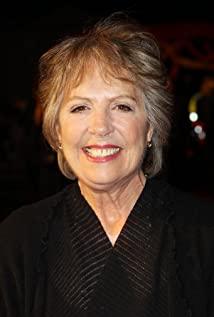This film has all the shadows of British elite education: boys' schools (absence of girls of the same age), teachers who admire beauty, the overwhelming task of going to a first-class university, elite homosexuality. However, the male protagonists of this film lack the obvious elite atmosphere and mission. They are no different from ordinary big boys. They play tricks on teachers all day long, tell dirty jokes, slander them, and sell all kinds of low-level corruption. Under the setting of the elite, the behavior of these big boys can also be described as a kind of irony.
The first appearance of this film seems to be the opposition of two educational ideas. One is Hector, the other is the Headmaster and Irwin. (In fact, the principal and Irwin are not the same, but here is the binary point). But in the end, we found that this is not a story about political satire, a game between two sides.
Hector is a very interesting character. Hector believes that the purpose of teaching is to make students truly love literature. What he represents is actually the British traditional elite teaching philosophy. (Ironically, he graduated from the University of Sheffield. He didn't say it, but he had an elite worship complex in his heart.)
Let me first say that "homosexual worship" was popular in British public schools in the 20th century. "The public school has become a myth, and homosexuality associated with it finds a kind of legitimacy and glory in China." Cambridge Oxford, where the boys are committed, is "a symbol of gay worship." "Most professors encourage male love... They demand love for boys as a philosophical ideal derived from ancient Greece, idealized to the point of removing all sensual and concrete sexual connotations." This legacy of homosexual worship has been circulating.
Hector is tall and bloated, with gray hair, and the image of an imaginary savvy scholar looks a little staid and obscene on the screen. (The name Hector is also very interesting. Hector is the national hero of Troy in Homer's epic. What is the irony of being called Hector by students, I don't know.) He has a history of homosexual worship in Britain (gay ~ no women) complex, that homosexuality is "a noble activity, a pure ideal," respected Plato, Wilde, Auden. Auden appears many times in the film, Auden himself attended Gresham and Oxford University and was one of the representatives of the British gay cult in the 20-30s. And that "Sleep Song - Lullaby" is also dedicated to Auden's lover.
But Hector, who recited psalms with nobility and selflessness in class, elevated homosexuality to the limit, was not like that in life. He indulges boys to act out brothels during French class He even likes to drive boys home on motorcycles (and pick on boys' appearance.), and then take the opportunity to touch their balls. God, he has a wife! Finally one day, he touched the balls of the students and was seen by the traffic police. He was about to be fired. He also argued that "knowledge dissemination itself is erotic." The headmaster was extremely angry, yelling "Fuck his Renaissance, fuck his Plato, fuck his Michelangelo, fuck his Wilde!" and Melles yelled, "If you touch a student's balls, you touch it. Come on, don't quibble!" This paragraph I love for ten minutes, just this sentence, exposes Hector's quibble that seems to be insightful, and exposes the filthy behavior of intellectuals wrapped in gorgeous language! All of a sudden, what the hell Wilde, that contemptible behavior was cut open in the sun! (Does anyone know that the main basis for Wilde's sentence was not having sex with Percy, but that he went to prostitutes... Although I like Wilde very much, I still want to expose him)
There's another scene that speaks volumes about Hector's personality. When Hector and Irwin share a class, they discuss the Holocaust with their students. Hector's first reaction was "Oh my God, how can you discuss the Holocaust with students". Then he said "Will they take pictures in the camp, will they laugh? Will they hold hands? None of this is appropriate" and then he said excitedly "Why can't we just denounce the concentration camps for being horrific and unprecedented?" "That kind of thing... Martyr becomes a trivial acronym." This not only reflects the dispute between literature and history over the elaboration of historical events, but also reflects the disdain of literature for historical elaboration. Hector believes that history should not be explained, should not be broken down, he believes that a painful silence is enough. Of course, I think both have merits, and it is best to unify the emotional expression of literature and the rational analysis of history, but I also think that Hector's hatred and understanding of history are too extreme. What Hector shows here is a literati's compassion for heaven and man, and it also reflects that he lives in a literati-style self-indulgence. After all, in terms of social utility, historical interpretation is far more important than literati intoxication.
A boy put it well, he said, "I think literati are all losers in life". To sum up, Hector is an emotional and wise scholar, but also has the cowardice, depression and self-indulgence of a literati.
Speaking of Irwin. I like Irwin's way of education, and there's nothing wrong with wanting to go to Cambridge or Oxford. The most interesting thing is that Irwin lied that he graduated from Oxford University, when in fact he graduated from Bristol University. This also reflects his inner desire for the elite consciousness of Oxford University.
Let's talk about "sarcasm". Several contrasts in the film are very interesting. Hector graduated from Sheffield University, but he has the tradition of Oxbridge - homosexual worship; Hector has to pretend to be a holy homosexual on the surface, and he likes to touch the balls of students, and then Dakin But bluntly telling Irwin, "Are you going to give me oral sex?" is a wonderful contrast between the superficial pretense and the direct lasciviousness; Irwin is the headmaster's hand-picked teacher to send his students to Oxbridge, but he is Bristol's...
But this irony is itchy and contradictory. The boys (should be said to be British boys) hate the power and hypocrisy of this filthy class society, and at the same time they are obsessed with and yearn for their superior status. They hate it and they love it (a teenage tradition). While they despised Hector's indecent assault, they also thought it was fun and interesting to sit in his back seat; Mrs. Melles shouted, "In the eyes of women, history is not as interesting as in the eyes of men, why is it so? Because they don't Status... History is a commentary on many incompetent men. What is history? History is that women follow men step by step." Strongly criticized this patriarchal society (especially the United Kingdom), but in the play, the background is set in the male In the school, there are very few female characters. Irwin is still flirting with Dakin when Melos is talking; they despise the school for forcing them to go to Oxford, but they work hard; they think that Irwin is very wise, and they try to seduce the teacher. ...At the end of the film, all the characters are reconciled after the student is admitted to Oxford, and it is peaceful and harmonious, as if everything before had never happened, and everything returned to the original point...
Finally, this film must not be regarded as a discussion of two kinds of education. The way the film is, it is not a big book satirical film. This is nothing more than some youthful turmoil among British teenagers in the context of the "gaokao". The film shows us one side of the English teacher-student relationship, but without the inclination, it's more of a light-hearted satire that satirizes Irwin and Hector at the same time, and praises them both at the same time. It is this humorous and ironic setting that makes the audience a little "science popular", and it is destined that the depth of this movie is insufficient.
Reference: History of Homosexuality in Europe (France) by Florence Tamanier, translated by Zhou Mang
View more about The History Boys reviews











